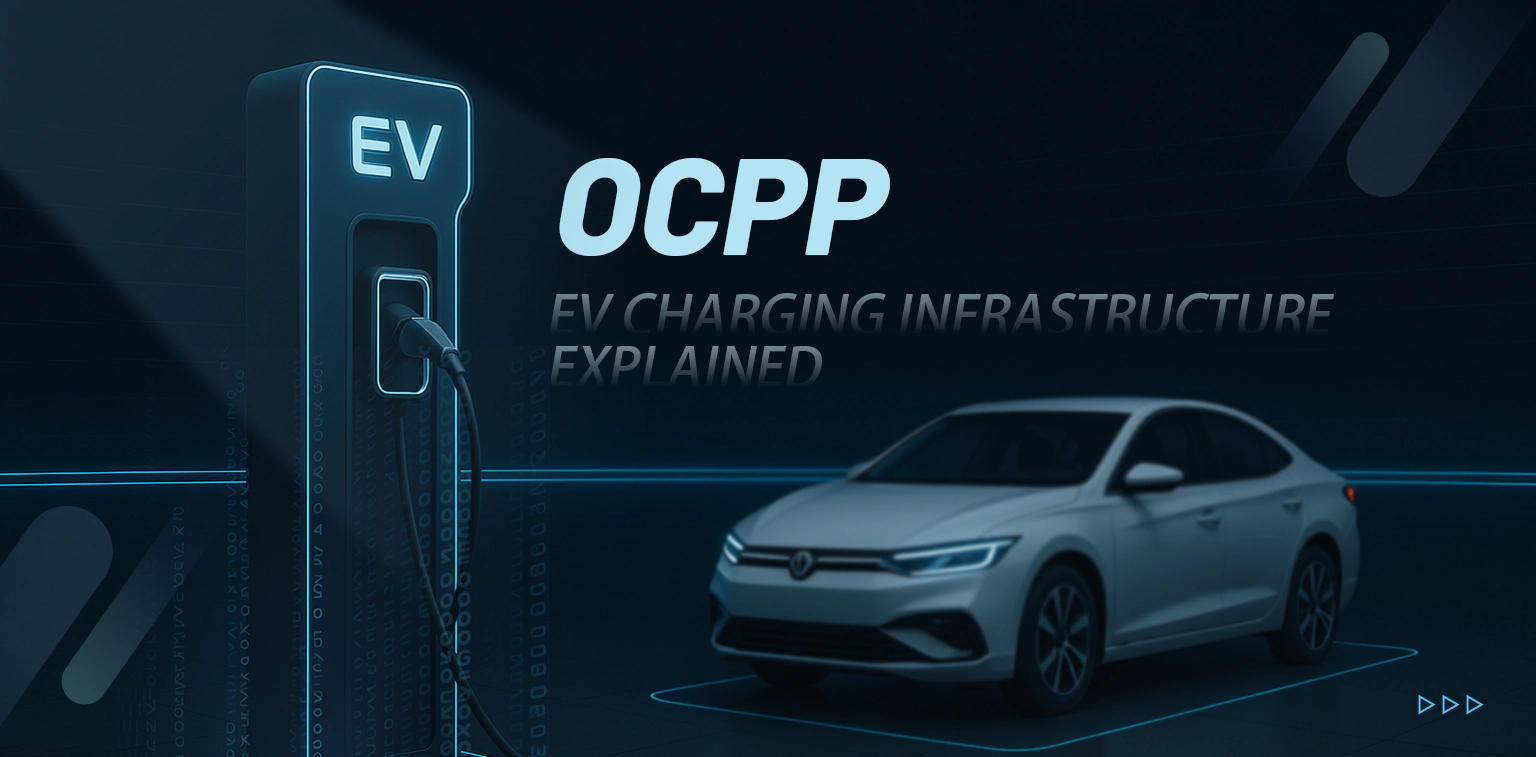
OCPP EV Charging Infrastructure Explained
The Open Charge Point Protocol (OCPP) is the global, open-source communication standard that connects electric vehicle (EV) charging stations (also called charge points) with central management systems (CSMS or CPMS). OCPP is foundational to the modern EV charging ecosystem, enabling interoperability, scalability, and innovation across hardware and software from different vendors.

▶ What Is OCPP?
OCPP is an application protocol that allows EV charging stations and backend management systems to communicate, regardless of manufacturer. It acts as a universal “language” for the EV charging industry, ensuring that any OCPP-compliant charger can work with any OCPP-compliant management platform.
▶ Key Features and Benefits
Interoperability: OCPP enables seamless integration between charging stations and management systems from different vendors, preventing vendor lock-in and allowing network operators to mix and match hardware and software as needed.
Scalability: Operators can easily expand their charging networks by adding new OCPP-compliant stations, supporting the rapid growth of EV adoption.
Remote Management: OCPP supports remote monitoring, diagnostics, firmware updates, and troubleshooting, reducing maintenance costs and improving uptime.
Smart Charging: Advanced versions of OCPP (such as 2.0.1 and 2.1) support smart charging features, including dynamic load management, energy optimization, and integration with distributed energy resources (DER) and vehicle-to-grid (V2G) capabilities.
Security: OCPP includes robust security features, such as encrypted communications, to protect against cyber threats.
Future-Proofing: As an open standard, OCPP evolves to support new technologies and regulatory requirements, ensuring long-term compatibility and investment protection.
▶ OCPP Versions
OCPP 1.6: The most widely adopted version, supporting core features like remote control, billing, authentication, and basic smart charging.
OCPP 2.0.1: Adds enhanced security, improved smart charging, and support for ISO 15118 (Plug & Charge, V2G).
OCPP 2.1 (2025): Introduces bidirectional charging (V2X), DER control, battery swapping, local cost calculation, and new payment options, while maintaining backward compatibility with 2.0.1.
▶ How OCPP Works
Connection: The charging station establishes a secure, two-way connection with the central management system, typically using WebSockets.
Communication: The charger and CSMS exchange messages about status, session control, billing, diagnostics, and more.
Management: Operators can monitor, control, and update stations remotely, while drivers benefit from reliable, user-friendly charging experiences.
▶ How to implement the OCPP protocol?
By using Shenzhen Huizhi Technology’s OCPP protocol gateway, you can enable your charging stations to support the OCPP protocol without changing any existing hardware.
▶ Summary:
OCPP is the global standard that enables electric vehicle charging infrastructure to be interoperable, scalable, and future-proof, benefiting operators, drivers, and the entire clean transportation ecosystem.